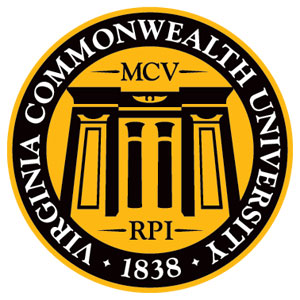Translational Research is Alive and Well at VCU
For many, the solutions to our most complex disease problems — cancer, Alzheimer’s, diabetes, to name a few — remain painfully elusive. Why, in the era of the Human Genome Project, modern molecular biology and genetics and incredibly detailed scans of our innermost regions, do these conditions defy our attempts to understand and cure them?

As a physician-investigator of chronic brain diseases, I have felt the frustration of watching many of my patients — all of them innocents — lose control over their bodies and minds. All the while I realized that we know so much about the cellular problems in their brains but have so few therapies to offer. And there are thousands like me who study the diseases of man with the hope that more knowledge means better treatments and less suffering to patients and families.
In the early years of this century, Elias Zerhouni, a former radiology professor at Johns Hopkins Medical School, was the director of the NIH. He became concerned that billions of public dollars were given in NIH research grants for incredibly elegant research into the inner workings of cells and tissues, but that little of the knowledge gained was being “translated” into treatments for diseases.
Biomedical research was increasingly carried out in "silos," individual laboratories having limited collaboration and less development of new knowledge into therapies. There were no formal programs at universities to educate people how to be "translational" — how to take new knowledge, turn it into a treatment, test the treatment in humans and use the outcome to guide future research.
Dr. Zerhouni shook things up in a big way when his office established the Clinical and Translational Science Awards (CTSA) program in which approximately 60 universities would receive large grants to reshape clinical and translational research and education. This was a bold step that created its own set of challenges to universities that had never done anything like this before, and to faculties who had never thought this way before.
In spite of the novelty, difficulties and expenses represented by creating a meaningful CTSA application, Virginia Commonwealth University invested money where needed and supported a complex and ultimately successful CTSA application led by Dr. John Clore, an endocrinologist-investigator. VCU is the only Virginia university to have a CTSA, testimony to the incredible talent of the many who contributed to the application.
I came to VCU late in its CTSA application process and take no credit for its success. Rather, I helped to start the VCU Parkinson’s Research Center that has translational research in degenerative brain diseases as its core mission. Our center, along with other VCU centers, is focused on disease discovery research, followed closely by therapy development, therapy testing and feedback of results to the discovery research process. This “loop” from bench to bedside to bench forms the core of the translational research paradigm essential to progress in treating diseases that are debilitating and frightening to patients and families and that place large burdens on scarce social resources.
We now face substantial financial challenges. Clinical earnings barely support the clinical mission much less any research as they did in the past. Federal grant dollars are scarce as the NIH struggles under declining federal support. We depend increasingly on philanthropy to maintain the scientific and therapeutic momentum established by the substantial public investment made in disease biology knowledge. It would be a tragedy if this were to disappear in a short-sighted attempt to balance the governmental checkbooks.
In acquiring a CTSA, VCU has done something truly remarkable for the citizens of Virginia. VCU will pioneer discovery research into diseases, rapidly facilitate appearance of novel therapies and train the next generation of translational investigators. The Virginia General Assembly and the governor also deserve praise for investing in translational research centers at VCU, such as the Massey Cancer and Parkinson’s centers.
Something else has changed in this process. The public and biomedical investigators are now real partners in disease discovery and therapy development. Both groups need to understand each other’s goals and engage in meaningful two-way conversations. We have much to learn from one another, and the CTSA process mandates that translational research be a cooperative effort between universities and the public they serve.
Virginians should celebrate VCU’s achievement and the commonwealth’s commitment to translational research at VCU. They should embrace both the opportunities of this future and the responsibilities to make certain this process succeeds.
James P. Bennett Jr., M.D., Ph.D., is Bemiss Professor, VCU Department of Neurology, and founding director, VCU Parkinson’s Disease and Movement Disorders Center. Contact him at This email address is being protected from spambots. You need JavaScript enabled to view it..
- Created on .